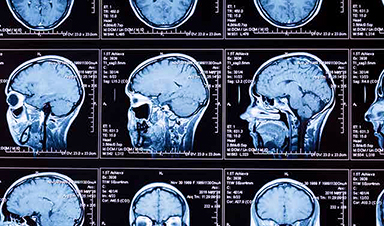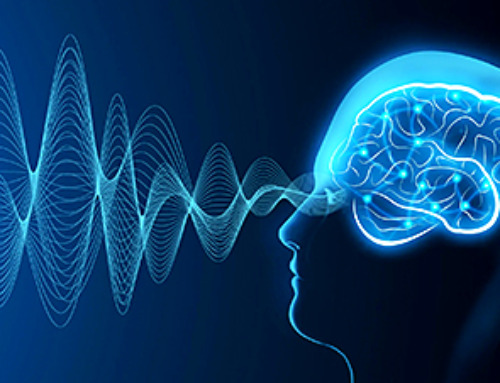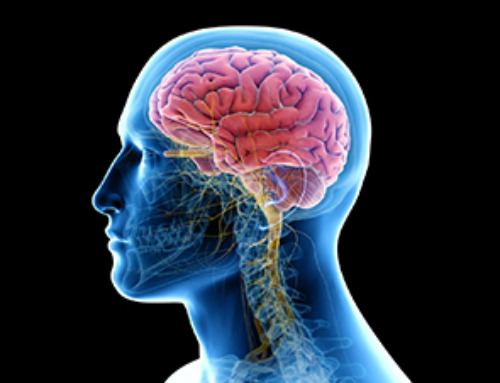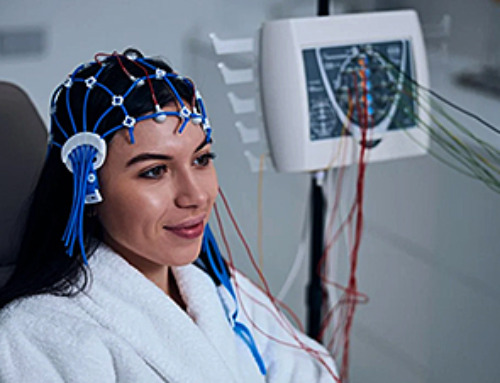Most of what we know about how COVID can affect the brain has come from studies of severe infection. In people with severe COVID, inflammatory cells from outside the brain can enter brain tissue and spread inflammation. There may be changes to blood vessels. Brain cells can even have changes similar to those seen in people with Alzheimer’s disease.
For the first time, a new study has investigated the effects of mild COVID (that is, infection that doesn’t lead to a hospital admission) on the brain. The findings may further explain some of the brain changes contributing to long COVID.
Brain scans and tests show changes
Many people who have had COVID report feelings of “brain fog”, fatigue and problems with concentration and memory long after their initial symptoms resolve. These problems, collectively referred to as “long COVID”, may last for months even after mild infection.
Long COVID is very common, and may affect more than half of the people who catch COVID, even if they have a mild case.
Scientists collected data as part of the massive UK Biobank database. They looked at brain magnetic resonance imaging (MRI) scans and tests of brain function in 785 volunteers who were assessed before the pandemic. They then compared this to the same data collected three years later, when about half of those participants had mild COVID infection, and the other half had not caught COVID. This allowed the scientists to determine the specific effects of mild COVID infection on brain structure and function.
The group who had mild COVID an average of five months beforehand had thinning of brain tissue in several brain regions, ranging from 0.2% to around 2% compared to their pre-COVID scan. This is equivalent to between one and six years of normal brain ageing. Affected brain regions included the parahippocampal gyrus (an area related to memory) and the orbitofrontal cortex, which is located at the front of the brain and is important for smell and taste.
The post-COVID group also showed a reduction in overall brain size between their MRI scans that wasn’t seen in the non-COVID group, and had altered connections between different brain regions in the olfactory cortex, an area related to smell.
They performed worse in a test for attention and mental flexibility, a finding that was associated with volume reductions within a part of the cerebellum related to smell and social relationships.
Comparing to other illnesses
To show these changes were specific to COVID and not just related to having a respiratory illness, the scientists also looked at a group of people who had pneumonia. They did not see the same changes, confirming they are related to COVID.
Decreases in brain volume are common to many brain diseases and disorders associated with degeneration, and have been found in people with mild cognitive impairment, Alzheimer’s disease, depression and traumatic brain injury, among others.
Problems with memory and attention are also frequent for people with these diseases and disorders, indicating mild COVID infection may accelerate brain degeneration. These changes could explain the reported symptoms of long COVID, such as brain fog.
The study did not look at the mechanisms of mild COVID in the brain. However, the authors suggest this could be due to inflammation, degeneration which spreads through the brain pathways associated with smell, or sensory deprivation due to loss of smell.
Read more from the source:
News
Brain waves could help paralyzed patients move again
People with spinal cord injuries often lose the ability to move their arms or legs. In many cases, the nerves in the limbs remain healthy, and the brain continues to function normally. The loss of [...]
Scientists Discover a New “Cleanup Hub” Inside the Human Brain
A newly identified lymphatic drainage pathway along the middle meningeal artery reveals how the human brain clears waste. How does the brain clear away waste? This task is handled by the brain’s lymphatic drainage [...]
New Drug Slashes Dangerous Blood Fats by Nearly 40% in First Human Trial
Scientists have found a way to fine-tune a central fat-control pathway in the liver, reducing harmful blood triglycerides while preserving beneficial cholesterol functions. When we eat, the body turns surplus calories into molecules called [...]
A Simple Brain Scan May Help Restore Movement After Paralysis
A brain cap and smart algorithms may one day help paralyzed patients turn thought into movement—no surgery required. People with spinal cord injuries often experience partial or complete loss of movement in their arms [...]
Plant Discovery Could Transform How Medicines Are Made
Scientists have uncovered an unexpected way plants make powerful chemicals, revealing hidden biological connections that could transform how medicines are discovered and produced. Plants produce protective chemicals called alkaloids as part of their natural [...]
Scientists Develop IV Therapy That Repairs the Brain After Stroke
New nanomaterial passes the blood-brain barrier to reduce damaging inflammation after the most common form of stroke. When someone experiences a stroke, doctors must quickly restore blood flow to the brain to prevent death. [...]
Analyzing Darwin’s specimens without opening 200-year-old jars
Scientists have successfully analyzed Charles Darwin's original specimens from his HMS Beagle voyage (1831 to 1836) to the Galapagos Islands. Remarkably, the specimens have been analyzed without opening their 200-year-old preservation jars. Examining 46 [...]
Scientists discover natural ‘brake’ that could stop harmful inflammation
Researchers at University College London (UCL) have uncovered a key mechanism that helps the body switch off inflammation—a breakthrough that could lead to new treatments for chronic diseases affecting millions worldwide. Inflammation is the [...]
A Forgotten Molecule Could Revive Failing Antifungal Drugs and Save Millions of Lives
Scientists have uncovered a way to make existing antifungal drugs work again against deadly, drug-resistant fungi. Fungal infections claim millions of lives worldwide each year, and current medical treatments are failing to keep pace. [...]
Scientists Trap Thyme’s Healing Power in Tiny Capsules
A new micro-encapsulation breakthrough could turn thyme’s powerful health benefits into safer, smarter nanodoses. Thyme extract is often praised for its wide range of health benefits, giving it a reputation as a natural medicinal [...]
Scientists Develop Spray-On Powder That Instantly Seals Life-Threatening Wounds
KAIST scientists have created a fast-acting, stable powder hemostat that stops bleeding in one second and could significantly improve survival in combat and emergency medicine. Severe blood loss remains the primary cause of death from [...]
Oceans Are Struggling To Absorb Carbon As Microplastics Flood Their Waters
New research points to an unexpected way plastic pollution may be influencing Earth’s climate system. A recent study suggests that microscopic plastic pollution is reducing the ocean’s capacity to take in carbon dioxide, a [...]
Molecular Manufacturing: The Future of Nanomedicine – New book from Frank Boehm
This book explores the revolutionary potential of atomically precise manufacturing technologies to transform global healthcare, as well as practically every other sector across society. This forward-thinking volume examines how envisaged Factory@Home systems might enable the cost-effective [...]
New Book! NanoMedical Brain/Cloud Interface – Explorations and Implications
New book from Frank Boehm, NanoappsMedical Inc Founder: This book explores the future hypothetical possibility that the cerebral cortex of the human brain might be seamlessly, safely, and securely connected with the Cloud via [...]
Global Health Care Equivalency in the Age of Nanotechnology, Nanomedicine and Artificial Intelligence
A new book by Frank Boehm, NanoappsMedical Inc. Founder. This groundbreaking volume explores the vision of a Global Health Care Equivalency (GHCE) system powered by artificial intelligence and quantum computing technologies, operating on secure [...]
Miller School Researchers Pioneer Nanovanilloid-Based Brain Cooling for Traumatic Injury
A multidisciplinary team at the University of Miami Miller School of Medicine has developed a breakthrough nanodrug platform that may prove beneficial for rapid, targeted therapeutic hypothermia after traumatic brain injury (TBI). Their work, published in ACS [...]





















